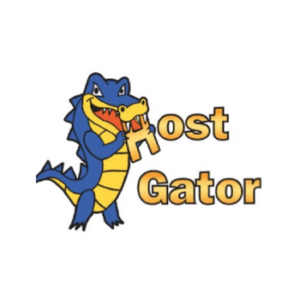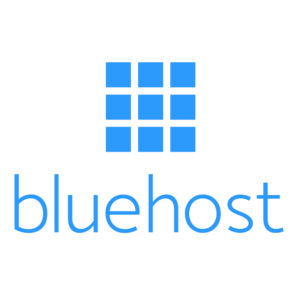Menu
HostGator VS GoDaddy VS Bluehost web hosting compared
Choosing the best web hosting company that will offer you value for money and reliable customer support isn’t an easy task. With so many different web hosting companies currently available on the market, there are key components you need to look and answer before making your final decision. We took the liberty to provide you a detailed comparison of the top three web hosting providers currently leading the industry.
Although all three of these web hosting companies offer an immense number of different features, building tools, renowned customer support, and flexibility (only for certain paid plans), we decided to make your decision-making process a lot easier.
To novices, the amount of disinformation and hyped up marketing speak could be deceiving which always leads them to a conundrum when choosing between Hostgator, Godaddy and Bluehost. After reading this review, we hope you will find it a straight-forward decision.



Because HostGator, GoDaddy, and Bluehost all boast with some incredible features, let’s look at some of the questions one needs to consider beforehand:
1. Do any of these web hosting providers offer me a flexible and reliable plan?
2. Will I receive the needed customer support and assistance when an external problem occurs?
3. How do I know which of these web hosting providers are the right fit for my business (i.e. blog, website, eCommerce store, audiobook library, etc.)
After reviewing the answers from these questions, we will have a clearer understanding of what each company has to offer and what not.
If you want to sign up for HostGator, expect to choose between three different plan options, Hatchling, Baby, and Business. Because HostGator offers affordable pricing, you can expect to receive free WordPress Installs, unmetered bandwidth, a free SSL certificate, and a professional email address. Some features may be limited to those seeking out a hosting plan for their blog or small business website, and you’ll need to upgrade your plan to receive more dedicated hosting features.
“Build your website under an hour”, that’s how GoDaddy markets their hosting and website building features. The web host may provide a free website building feature once you’ve signed up, which is a great thing for those who simply don’t have the skill or time to code and develop a new site from scratch. Although GoDaddy offers customers a variety of incredible features such as great up-time, online customer support, unlimited bandwidth, and unlimited disk space on all plans, they’re not quite a credible option for business sites, especially if you’re looking to grow your business in the coming time.
Bluehost is a good choice if you’re looking for flexibility, as it offers a free domain, great up-time (99.98%), like HostGator, Bluehost uses cPanel, and they offer a variety of plan types for shared, VPS, Dedicated, and Cloud hosting. You can also see that Bluehost has something for those seeking to have a small website with minimum traffic, and also for high traffic websites that receive thousands of daily visitors.
Customer support is particularly important, especially if you’re someone new to the web developing and web hosting industry. HostGator has managed to rank in great customer support on their site, but a bit of research shows a lack of communication about server maintenance and downtown between HostGator Support and their customers.
GoDaddy offers live chat to their support team, and if your problem can’t be solved immediately, they connect you with a remote call. They offer 24/7 customer support, but similar to HostGator, online forums suggest differently.
Although Bluehost has received a negative response from customers and previous users about its customer support service, it still offers 24/7 customer support on phone, email, and live chat. It’s good to know that all Bluehost customer queries are dealt with by a team of WordPress experts and a customer support team, which is a plus.
Between GoDaddy and Bluehost, HostGator has in someway filled the gap for those seeking an uncomplex website, with minimal features and add-ons. Some forums do suggest HostGator is good for novice and entry-level users, as it offers different hosting categories. It’s a reliable choice for a small website that will be growing, but upgrades will be needed regularly.
Flexible, easy to use and they offer a drag and drop web building tool. Any novice and veteran webmaster will find it easy to make use of GoDaddy, but although it might seem they tend to cater more towards bloggers, freelance writers, and small business websites, there is yet to be a good review about certain eCommerce and online store features that work promptly without any problems.
Bluehost captures it all under one roof and gives you free and 1-click site migration for WordPress. Although they’re recommended as one of the top three web hosting providers by WordPress, they tend to be a little more complex for novice users, and if you want a cheaper price or plan, you’ll need to sign up for longer than 12 months. That might become a problem for some who only want a small website, blog, or online journal – but bigger companies and larger websites will find its pricing and plan structuring very convenient.
To ensure we cover not just the important bits, we can compare three similar features each hosting provider has to offer. We’ll be looking at:
* Server categories and up-time
* Disk Space availability for small and large plans
* Customer service
HostGator offers four different hosting categories including, shared, VPS, dedicated, and WordPress hosting. Because this web hosting company is big enough to offer different server categories, yet small enough to assist, you might find that both its shared and VPS hosting is quite similar, offering slightly more options in its Baby plans, but the price difference of roughly $8 between the two would make you rather sign up for a VPS hosting server.
They also tend to push newcomers to sign up for long term plans, starting at three years, which in many cases have seen customers rather sign up for a month to month payment plan. HostGator is one of the few companies that provide both Linux and Windows dedicated servers. Starting at $119.00/month for a dedicated server, you might feel more comfortable paying $79.99/month for VPS. Its uptime is the best, with a 99.99% uptime track record, but slow communication on server maintenance.
Offering five different hosting categories, and a tiered plan structure, GoDaddy ranks in a lot of customers with its lucrative options. Although they might have proved a strong track record with good uptime, many customers have seen their sites being down more than what the provider markets. In some instances, customers saw their sites being down for up to 8 hours more in one year. This can be connected to those using shared hosting plans, but its reseller hosting and WordPress hosting options are a close second to that of Bluehost.
Reseller plans start at $7.50/month, with its reseller program selling more than 1.3 million domains and over 50 000 hosting plans. Additionally, GoDaddy also allows you to set the margins on all your products and services. In the same breath, WordPress hosting isn’t that bad, starting at $1.00/month, and going up to $19.99/month, they tend to offer similar features than that of Bluehost, but you only receive a free SSL certificate once you’ve purchased an Ultimate plan of $17.99/month. They offer a 99.99% uptime for all plans.
Same as GoDaddy, Bluehost offers five main types of hosting, shared, VPS, Dedicated, WordPress, and Cloud hosting. Because Bluehost is a top contender for WordPress sites, many customers tend to lean more towards purchasing a WordPress hosting plan and disregard their other offerings. Shared hosting starts at $3.49/month and goes up to $23.99/month and dedicated hosting starts at $119.99/month to $209.99/month. Although, the prices might be quite steep, having a WordPress hosting plan which starts at $2.95/month may be better, but unfortunately these prices are only so low if you sign up for 36 months.
WordPress Pro plan will satisfy your web needs if you’re looking to largely expand your site in the coming time, and they throw in a lot of features such as business review tools, SEO management, Marketing Center, PayPal integration, and Elastic Search. Bluehost uptime falls just under HostGator and GoDaddy with a 99.98% uptime, still on par with industry standards.
Having enough disk space, especially if you want to expand your website and add multiple pages can become an important factor in the decision-making process. Ironically enough, they offer unlimited disk space on a Hatchling shared hosting plan, but moving to a VPS or dedicated hosting plan, you’ll receive between 120 GB and 1 TB of disk space, but this is only available if you choose to pay for a larger hosting plan. A mere 50 GB to 150 GB disk space and storage is available for WordPress hosting, with plans starting at $14.95/month.
Depending on what type of plan you’re on, GoDaddy offers a mere 30 GB disk space for those using its free trial. Luckily, all of its bigger plans, except for the Economy comes with unlimited disk space if you’re using a shared hosting server. GoDaddy only informs you on a later stage that users should allocate 20% of their disk space for overhead software and system maintenance, failing in doing so could result in technical errors and downtime on your end.
Unfortunately, Business hosting has no unlimited disk space, and you can receive anything between 60 GB to 480 GB, this might come a bit short, especially for a business hosting plan. An online community forum on the GoDaddy site, saw some users being left with zero disk space, even after their sites use far below allocated space. GoDaddy offers decent performance but lacks when it comes to offering customers enough disk space on VPS and dedicated hosting plans without having to pay more.
Paying less can be better, sometimes. Although Bluehost can offer better site migration and 1-click WordPress installations, some of its plans offer unlimited disk space. Unfortunately for WordPress hosting there is a cap, with 50 GB disk space, so those looking to expand will also need to purchase a bigger plan. Luckily, the pricing structure on Bluehost isn’t far out, with smaller plans costing between $2.95/month, $3.49/month, and up to $19.99/month. These plans on shared, VPS and dedicated hosting can all offer your unlimited disk space, but for better performance and higher optimization, you’ll need to purchase a bigger plan.
There are still some online offers for its shared, VPS, and dedicated hosting plans that have unlimited disk space, but it doesn’t look as if Bluehost will be including unlimited disk space for its WordPress plans any time soon. Luckily, you can still get up to 15 TB of disk space for roughly under $15.00/month.
If you have a problem, you’ll get it addressed, eventually. If you’re on a dedicated server, you might run into more hassles with customer support than you’d anticipated.
Shared hosting and VPS hosting problems are solved over some time. They might not do a great job at it, but GoDaddy has been making some good improvements in recent years.
If you’re more tech-savvy and have no stress about dealing with everything on your own, Bluehost tends to assist more customers who are on its shared hosting plans. Luckily, all customer problems are dealt with by a team of highly trained individuals.
Paying less won’t always solve your problems, especially in the world of web hosting. If you’re looking for a reliable web hosting company, decide on Bluehost, it’s affordable, reliable, offers unlimited disk space has great uptime, and can cater to both small and large websites. Its customer service isn’t the best, but you’ll manage to get hold of someone who can assist you when there’s a problem.
GoDaddy makes people feel disappointed and let down when it upsells basic security features that can tripple the hosting fee. This makes it lose a lot of credibility. It is a good option for bloggers, writers, and everything in between, but it comes at a higher price. Its onboard web building tools can be very handy, and if you want to have a simple, easy, and reliable website you’ll find success in using GoDaddy.
Finally, HostGator has many things under one roof and other things not so much. It’s still a very affordable option, with great uptime speeds, simple hosting categories, but with limited disk space. Their servers and software maintenance are topnotch, with the company having an unmatched track record for its reliability.
Choosing the right hosting company isn’t easy but paying less won’t help you. Ensure you have enough financial resources and knowledge to purchase a plan which will suit your web needs.
We think both Hostgator and Bluehost are fairly good choices.